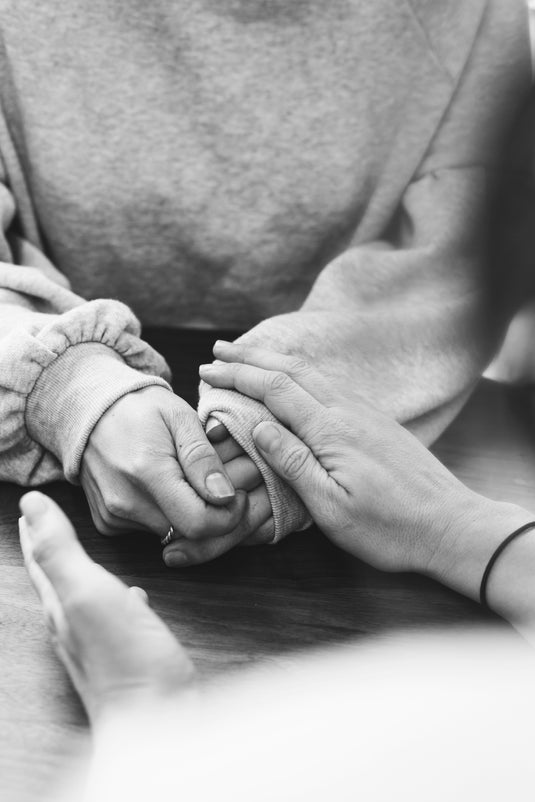Our most recent blog posts (part 1, part 2) summarized several ways that we coped with grief in the early months after losing our son. This next series of blog posts will elaborate on our experiences with these coping strategies.
Attend Support Groups
A couple weeks after returning home from the hospital after our son’s stillbirth, a friend reached out and recommended that we explore Postpartum Support International’s (PSI) child loss resources. We learned that, in addition to offering a directory of perinatal mental health therapists, PSI had a wide range of support groups for parents whose children died.
For example, groups included:
- Stillbirth and Infant Loss Support for Parents
- Pregnancy and Infant Loss Support for Moms
- Black Moms in Loss Support Group
We signed up for a virtual support group for parents taking place the very same night we learned about PSI. We didn’t know what to expect but looked forward to connecting with other people who might relate to what we were going through.
The group was led by a trained facilitator and started off with introductions, followed by educational information on navigating child loss and postpartum mental health. Then, there was “talk time” for participants to share whatever was on their minds (or just listen to others).
The introductions portion was the only time each participant was required to talk. During the introductions, we valued the opportunity to say our son’s name out loud. We shared that our first child, Travis Jr., was stillborn at 36 weeks on July 1, just weeks prior.
We heard stories of many other parents whose children had died at all different stages of life and in different ways. We learned about twin-to-twin transfusion syndrome, sudden infant death syndrome (SIDS), placental abruptions, congenital issues, unexplained deaths like our son’s, and other tragic stories.
Each of our stories was different, but we all shared the common experience of loss - specifically, death of a child. The kind of loss that most people never expect they will experience.
We learned that we were all part of a club - the worst kind of club. The kind no one wanted to be in. But a unifying club nonetheless.
That night, the facilitator asked us to use the imagery of a flower to describe how we were feeling. There were many “dead” flowers in the group. A lot of hopelessness and despair.
We walked over to our kitchen counter and grabbed some flowers that we’d brought home from the hospital weeks ago. The flowers were now drooping but still hanging on to life. Holding the flowers up to the computer screen, we described how we felt: Drooping, been through life’s storm, but hanging on. Hanging on to hope. Hanging on to faith in God. Reaching for the sunlight amidst the darkness.
We attended those support groups for months, often multiple times a week for Travis Jr.’s mom in particular.
Travis Jr.’s dad later joined some support groups specific to fathers, such as the Sad Dads Club and Rachel’s Gift support groups. These groups provided a special space for the dads to share their unique challenges in grieving the loss of their children.
As the months went on, our attendance in these support groups decreased, while the number of newly bereaved parents attending the groups sadly continued to increase.
Nonetheless, we are grateful to know that these groups are still available whenever we may feel the need to engage in this space, no matter how much time goes by after the death of our son.
We’ve learned that engaging with community is an important aspect of navigating grief, and we’re thankful for the support groups that have met that need.

